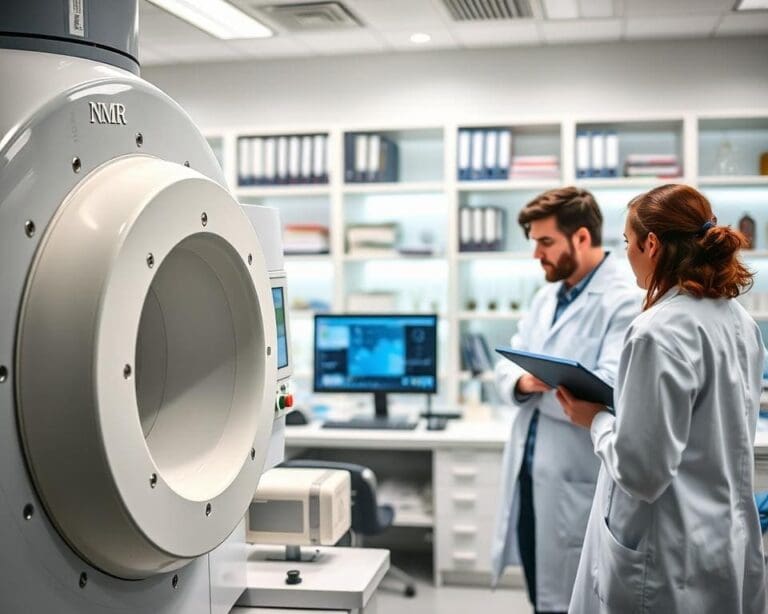In the ever-evolving landscape of national defense, nations face a profound challenge: harnessing the power of advanced military technologies while upholding the principles of ethics and humanitarian values. This article delves into the intricate relationship between militaire technologieën and ethiek, exploring the delicate balance that must be struck to ensure that the pursuit of security and dominance does not come at the cost of moral integrity.
As the defense sector continues to witness revolutionary advancements, from autonomous weapons systems to the integration of artificial intelligence, the ethical implications of these innovations have come under increasing scrutiny. Policymakers, military strategists, and the public alike must grapple with the complex question of how to harness the benefits of these defensie-innovatie while mitigating the potential risks and upholding fundamental humanitarian principles.
This article will examine the role of ethische besluitvorming in the development and deployment of military technologies, exploring the critical considerations that must guide responsible innovation. It will also delve into the challenges posed by emerging technologies, such as militaire AI, and the importance of aligning these advancements with international laws and humanitaire wetten.
Ultimately, this article aims to provide readers with a comprehensive understanding of the delicate balance between bewapening en moraliteit, empowering them to navigate the complex terrain of veiligheidsbeleid and technologische vooruitgang with a steadfast commitment to ethical principles and the preservation of human dignity.
Key Takeaways
- The article explores the balance between military power and ethical considerations in modern warfare.
- It examines how nations navigate the complex landscape of military technologies and ethics, seeking to harness technological advancements while upholding moral and humanitarian principles.
- The article provides insights into the evolving role of ethics in defense innovation, the challenges posed by emerging technologies like military AI, and the importance of responsible decision-making in the pursuit of national security.
- It highlights the critical need to align military technologies with international laws and humanitarian values, ensuring that the pursuit of security does not come at the cost of moral integrity.
- The article aims to empower readers to navigate the complex terrain of security policy and technological progress with a steadfast commitment to ethical principles and the preservation of human dignity.
Inleiding: De uitdaging van moderne militaire technologie
De defensiesector heeft in de afgelopen jaren een ongekende technologische revolutie ondergaan. Steeds geavanceerder wapensystemen en militaire technologieën worden ontwikkeld, die de mogelijkheden van defensie-innovatie vergroten. Maar deze militaire technologie brengt ook een reeks ethische vraagstukken met zich mee die zorgvuldig moeten worden overwogen.
Revolutionaire ontwikkelingen in de defensiesector
Op het gebied van defensie-innovatie zien we fascinerende ontwikkelingen, zoals de opkomst van zelfstandig opererende robotsystemen, geavanceerde raketwerpers en hightech wapensystemen. Deze revolutionaire technologieën stellen defensieorganisaties in staat om hun militaire kracht aanzienlijk te vergroten.
Ethische vraagstukken rond nieuwe wapensystemen
Echter, met deze technologische vooruitgang komen ook complexe ethische vraagstukken naar voren. Vragen rijzen over de verantwoordelijkheid en besluitvorming bij het inzetten van autonome wapensystemen, de gevolgen voor burgers en de naleving van humanitair recht. Het is essentieel om een juist evenwicht te vinden tussen militaire kracht en morele overwegingen.
“De uitdaging is om de ongekende militaire mogelijkheden te benutten, terwijl we tegelijkertijd de ethische en humanitaire implicaties onder ogen zien.”
De rol van ethiek in militaire innovatie
As the defense sector continues to witness revolutionary advancements in military technologies, the importance of ethiek in militaire innovatie cannot be overstated. Ethical considerations are crucial for ensuring verantwoorde technologische vooruitgang in this domain, aligning new capabilities with moral principles and humanitarian laws.
Why Ethics is Crucial for Responsible Technological Advancement
The rapid pace of technological innovation in the military sphere often outpaces the development of ethical frameworks to govern their use. However, integrating ethical deliberations into the design and deployment of new weapons systems is essential for several reasons:
- Preventing unintended harm and collateral damage to civilian populations
- Ensuring compliance with international laws and treaties, such as the Geneva Conventions
- Maintaining public trust and legitimacy in the use of military force
- Fostering a culture of responsibility and accountability within the defense industry
“Ethical considerations must be at the forefront of military innovation, guiding the development and deployment of new technologies to uphold the principles of just war and respect for human life.” – Dr. Sarah Witt, Professor of Military Ethics
By embedding ethical frameworks into the innovation process, defense organizations can navigate the complex landscape of emerging technologies, such as autonomous weapons and artificial intelligence, in a manner that is both strategically advantageous and morally responsible.
Militaire technologieën en ethiek: Balans tussen kracht en moraliteit
In de voortdurende zoektocht naar militaire superioriteit is er een kritische balans tussen technologische vooruitgang en ethische verantwoordelijkheid. Naties en defensieorganisaties worstelen voortdurend met de uitdaging om de kracht van moderne militaire technologieën te benutten, terwijl ze tegelijkertijd de morele en humanitaire principes in acht nemen.
Het is een delicaat evenwicht waarbij de volgende aspecten zorgvuldig moeten worden afgewogen:
- De ethische gevolgen van het ontwikkelen en gebruiken van geavanceerde wapensystemen
- Het behoud van menselijke controle en verantwoordelijkheid in militaire besluitvorming
- De naleving van internationale wetten en verdragen inzake oorlogsvoering
- De impact van militaire technologieën op burgers en niet-strijdende partijen
Deze complexe afwegingen vereisen een interdisciplinaire benadering waarbij militaire strategen, ethici, juristen en technologie-experts samenwerken. Door deze belanghebbenden bij elkaar te brengen, kunnen organisaties een geïntegreerd kader ontwikkelen om balans tussen kracht en moraliteit te bereiken bij de ontwikkeling en het gebruik van militaire technologieën.
| Ethische overwegingen | Technologische mogelijkheden |
|---|---|
| Voorkomen van burgerslachtoffers | Precisiegeleide wapens |
| Humanitaire impact van wapens | Non-letale wapensystemen |
| Menselijke controle over beslissingen | Semi-autonome en autonome systemen |
Door deze ethiek en militaire technologieën hand in hand te laten gaan, kunnen organisaties een duurzaam evenwicht vinden tussen bescherming, macht en moraliteit – een vitaal element voor verantwoordelijke innovatie in de defensiesector.
Ethische besluitvorming in de ontwikkeling van defensietechnologie
In het hart van de moderne militaire innovatie ligt een kritieke uitdaging: hoe kunnen we nieuwe defensietechnologieën ontwikkelen op een ethisch verantwoorde manier? Dit is geen gemakkelijke opgave, maar een essentieel aspect van de voortdurende vooruitgang in de sector.
Ethische besluitvorming speelt een cruciale rol bij het navigeren door de complexe landschap van militaire technologie. Defensieorganisaties en beleidsmakers moeten zorgvuldig afwegen hoe nieuwe wapensystemen, surveillance-instrumenten en andere innovaties kunnen worden ingezet op een manier die de menselijke waardigheid en internationaal recht eerbiedigt.
Dit vereist de betrokkenheid van diverse belanghebbenden, waaronder militaire leiders, ethici en vertegenwoordigers uit de samenleving. Samen kunnen zij richtsnoeren ontwikkelen die de ethische besluitvorming, defensie-technologie en militaire innovatie met elkaar in balans brengen.
Enkele cruciale elementen van dit proces zijn:
- Het identificeren van ethische kwesties, zoals autonomie, proportionaliteit en non-discriminatie, die inherent zijn aan nieuwe militaire technologieën.
- Het ontwikkelen van richtlijnen en evaluatiekaders om de potentiële impact van technologieën op menselijke levens en rechten te beoordelen.
- Het betrekken van diverse stakeholders, waaronder militaire specialisten, ethici en vertegenwoordigers uit de samenleving, bij de besluitvorming.
- Het implementeren van transparante en verantwoordelijke processen voor het nemen van ethische beslissingen in de ontwikkeling van defensietechnologie.
Door deze fundamentele stappen te nemen, kunnen defensieorganisaties en beleidsmakers de ethische integriteit van hun innovatie-inspanningen waarborgen en het vertrouwen van het publiek in de verantwoordelijke ontwikkeling van militaire technologie versterken.
De opkomst van militaire AI en autonome systemen
As technology continues to evolve, the military landscape is undergoing a remarkable transformation with the emergence of militaire AI and autonome systemen. These cutting-edge advancements are revolutionizing the way armed forces operate, offering both potential voordelen and concerning risico’s.
Militaries around the world are increasingly integrating AI-powered systems into their operations, from decision-support tools to fully autonomous weapons. These intelligent systems can process vast amounts of data, make rapid decisions, and execute complex maneuvers with precision, potentially enhancing the efficiency and effectiveness of military operations.
Advantages of AI in the Armed Forces
- Improved situational awareness and real-time decision making
- Enhanced logistical planning and resource optimization
- Reduced risk to human personnel in dangerous or volatile environments
- Increased speed and accuracy in target identification and engagement
Ethical Concerns and Risks of Autonomous Systems
However, the deployment of autonome systemen in the military also raises significant ethical concerns. Questions of accountability, human control, and the potential for unintended consequences loom large as these systems become more advanced and autonomous.
- Lack of human oversight and accountability in critical decision-making
- Potential for AI-powered systems to make biased or flawed decisions with devastating consequences
- Concerns about the proliferation and misuse of autonomous weapons by state and non-state actors
- Challenges in ensuring compliance with international humanitarian laws and human rights standards
As the military’s reliance on militaire AI and autonome systemen continues to grow, it is crucial that policymakers, military leaders, and the public engage in a thoughtful and ethical dialogue to ensure these technologies are developed and deployed responsibly, with a keen focus on preserving human dignity and upholding the principles of just warfare.
| Advantages of Military AI | Risks and Concerns |
|---|---|
| Improved situational awareness and decision-making | Lack of human oversight and accountability |
| Enhanced logistical planning and resource optimization | Potential for biased or flawed decisions |
| Reduced risk to human personnel in dangerous environments | Challenges in compliance with humanitarian laws |
| Increased speed and accuracy in target identification | Proliferation and misuse of autonomous weapons |
Humanitaire wetten en internationale verdragen
As the military technology landscape evolves, the role of international regulations becomes increasingly crucial. Humanitaire wetten and internationale verdragen serve as the foundation for ensuring that new weapon systems adhere to the principles of internationale regelgeving and respect for human rights.
These legal frameworks, such as the Geneva Conventions and the Biological Weapons Convention, provide a comprehensive set of rules and guidelines that govern the development and use of militaire technologie. They aim to protect civilians, restrict the use of inhumane weapons, and promote ethical decision-making in the defense sector.
The Evolving Regulatory Landscape
The rapid pace of technological advancements, however, often outpaces the ability of these international regulations to keep up. As new militaire technologie, such as autonomous systems and advanced cyber capabilities, emerge, policymakers and legal experts must continuously re-evaluate and adapt these internationale verdragen to address evolving ethical considerations.
| Key International Agreements | Focus Areas |
|---|---|
| Geneva Conventions | Protection of civilians, prisoners of war, and wounded or sick combatants |
| Biological Weapons Convention | Prohibition of the development, production, and stockpiling of biological and toxin weapons |
| Convention on Certain Conventional Weapons | Restriction on the use of weapons that cause excessive or indiscriminate harm |
By staying vigilant and continuously updating these internationale regelgeving, the international community can strive to maintain a delicate balance between the advancements in militaire technologie and the ethical principles that govern their responsible use.
Verantwoordelijke innovatie in de defensie-industrie
As the defense industry continues to push the boundaries of technological innovation, the need for responsible and ethical practices has become increasingly crucial. Companies within the verantwoordelijke innovatie (responsible innovation) sector are leading the charge in ensuring that new military technologies are designed and manufactured with strong moral and humanitarian principles in mind.
At the forefront of this movement are organizations that have implemented rigorous ethische bedrijfsvoering (ethical corporate governance) frameworks. These frameworks involve the establishment of ethical review boards, which carefully scrutinize the development of new defensie-industrie (defense industry) products and services to ensure they align with international laws and ethical guidelines.
- Ethical review boards often comprise experts from various fields, including military strategists, ethicists, and humanitarian advocates, who work collaboratively to assess the potential risks and benefits of emerging technologies.
- Many defense companies have also adopted comprehensive ethical codes of conduct, outlining their commitment to responsible innovation and the protection of human rights.
- These codes often include guidelines for employee training, supplier vetting, and the implementation of robust quality control measures to mitigate the potential for misuse or unintended consequences.
The defense industry’s embrace of responsible innovation is a testament to its recognition of the profound societal impact of its work. By prioritizing ethical considerations alongside technological advancements, these companies are paving the way for a future where military power is balanced with moral responsibility.
| Responsible Innovation Initiatives | Key Features |
|---|---|
| Ethical Review Boards | Multidisciplinary teams that assess the ethical implications of new technologies |
| Ethical Codes of Conduct | Comprehensive guidelines for responsible innovation and human rights protection |
| Quality Control Measures | Robust processes to mitigate the potential for misuse or unintended consequences |
“The defense industry has a moral obligation to ensure that its innovations are not only technologically advanced but also ethically sound. Responsible innovation is the key to maintaining the trust and confidence of the public we serve.”
As the defense industry continues to navigate the complex intersection of military might and moral responsibility, the commitment to verantwoordelijke innovatie (responsible innovation) will be essential in shaping a future where technological progress and ethical principles coexist in harmony.
Ethische uitdagingen van de toekomst
Als we vooruitkijken naar de toekomst van militaire technologieën, is het cruciaal om de potentiële ethische uitdagingen te onderkennen. Naarmate de sector zich blijft ontwikkelen, zullen we geconfronteerd worden met complexe vraagstukken waarbij de balans tussen militaire kracht en morele overwegingen nauwlettend in de gaten gehouden moet worden.
Toekomstige ontwikkelingen en hun potentiële ethische gevolgen
Een aantal toekomstige ontwikkelingen die belangrijke ethische gevolgen kunnen hebben, zijn onder andere:
- Verdere vooruitgang in autonome en zelfbesturende wapensystemen, met vragen over verantwoordelijkheid en menselijke controle
- Doorbraken in quantum computing, die nieuwe kwetsbaarheden en cyberveiligheidsrisico’s met zich mee kunnen brengen
- Ontwikkelingen op het gebied van biotechnologie en genetica, met dilemma’s rond genetisch gemodificeerde soldaten en potentiële biowapens
Deze technologische innovaties brengen niet alleen nieuwe militaire mogelijkheden, maar ook fundamentele ethische vraagstukken met zich mee. Voortdurende dialoog, onderzoek en proactief beleid zullen noodzakelijk zijn om ervoor te zorgen dat de vooruitgang in militaire technologie in balans blijft met morele overwegingen.
“De toekomst van militaire technologieën is gecompliceerd, met zowel beloften als valkuilen. Het is aan ons om ervoor te zorgen dat ethische principes centraal staan, zodat we de kracht van innovatie kunnen benutten zonder onze morele kompas te verliezen.”
Door de ethische uitdagingen van de toekomst proactief aan te pakken, kunnen we een pad vinden dat militaire slagkracht combineert met een sterk moreel kompas. Dit is cruciaal om een evenwicht te behouden tussen kracht en moraliteit in de ontwikkeling van defensietechnologie.
| Toekomstige Ontwikkeling | Potentiële Ethische Gevolgen |
|---|---|
| Autonome wapensystemen | Verantwoordelijkheid, menselijke controle, autonomie versus menselijkheid |
| Quantum computing | Cyberveiligheidsrisico’s, kwetsbaarheid van systemen |
| Biotechnologie en genetica | Genetisch gemodificeerde soldaten, biowapens, menselijke integriteit |
Conclusie: De noodzaak van een evenwicht tussen kracht en moraliteit
In deze diepgaande verkenning van de link tussen militaire technologieën en ethiek, hebben we onderkend dat de voortdurende vooruitgang in de defensiesector een delicaat evenwicht vereist tussen kracht en moraliteit. Naarmate onze militaire capaciteiten blijven groeien, is het van cruciaal belang dat we de ethische principes en humanitaire wetten blijven naleven, zodat onze streven naar nationale veiligheid in overeenstemming blijft met morele standaarden.
Ethische besluitvorming, internationale samenwerking en verantwoorde innovatie in de defensie-industrie zullen de sleutel zijn om dit evenwicht te handhaven. Door deze integrale aanpak kunnen we ervoor zorgen dat de toekomstige ontwikkelingen op het gebied van militaire technologieën, zoals kunstmatige intelligentie en autonome systemen, worden afgestemd op zowel onze strategische behoeften als onze morele verplichtingen jegens de mensheid.
Naarmate de aarde en onze samenleving verder evolueren, zullen we onophoudelijk worden uitgedaagd om een balans te vinden tussen de kracht van onze militaire middelen en de moraliteit die ons als beschaafde naties definieert. Door deze ethische en verantwoorde benadering van innovatie in de defensiesector kunnen we een toekomst opbouwen waarin onze technologische vooruitgang hand in hand gaat met onze bedachtzame toepassing ervan.












